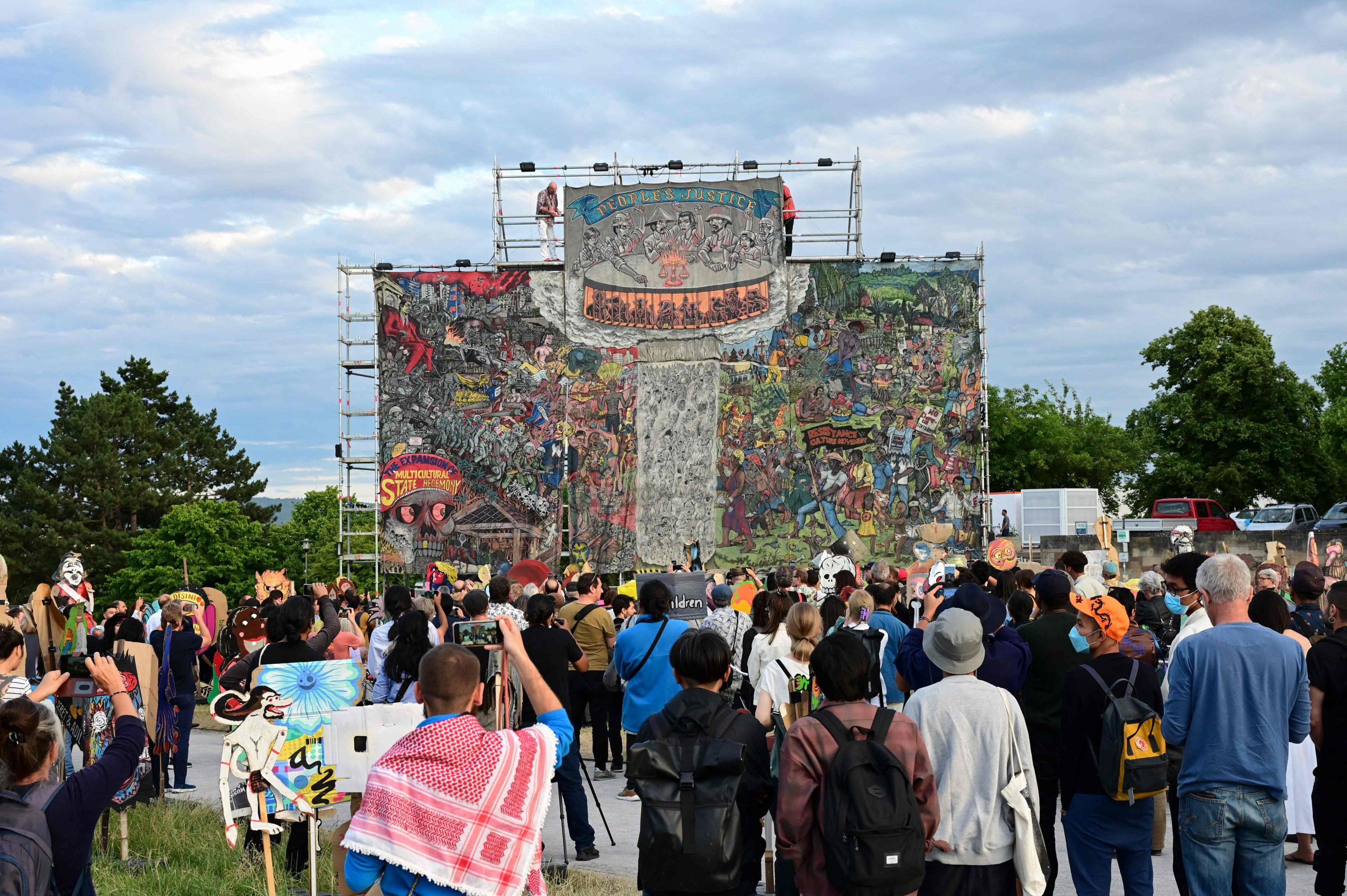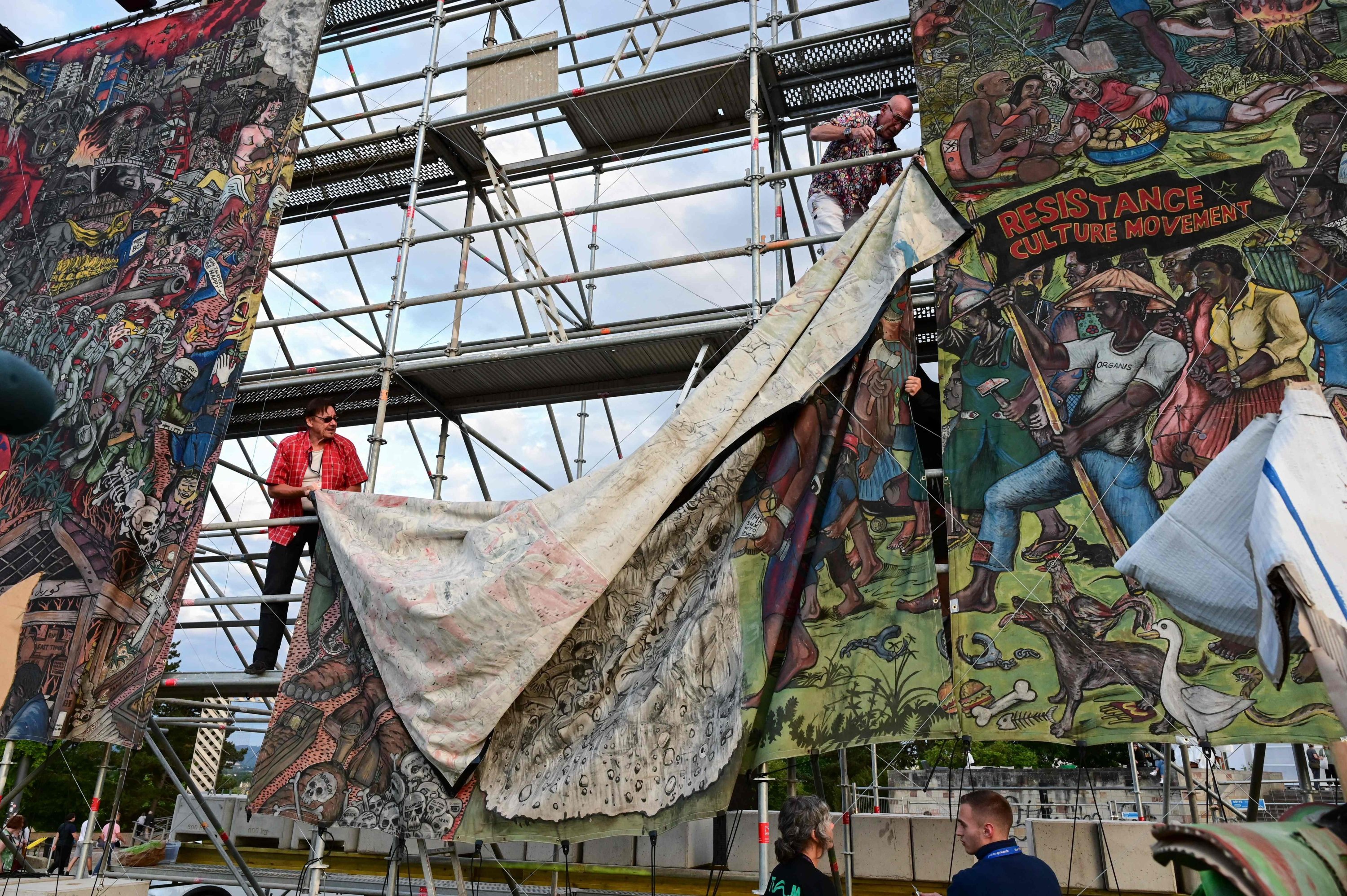© Turkuvaz Haberleşme ve Yayıncılık 2025
The director general of Documenta, one of the world's biggest art fairs, was forced to resign following an anti-Semitism scandal that was an "overdue step that comes much too late," according to some after outrage over anti-Semitic exhibits upon opening in Germany last month.
Documenta, which every five years turns the sleepy German city of Kassel into the center of the art world, features more than 1,500 participants and for the first time since its launch in 1955, had been curated by a collective, Indonesia's Ruangrupa.
But on Saturday its supervisory board expressed "profound dismay" about "clearly anti-Semitic" content after the fair opened in June, saying an agreement had been reached with director general Sabine Schormann to "terminate (her) contract."
An interim director will be appointed, a statement added.

Two days after the show opened to the public, one of the works on display by Indonesian art group Taring Padi came under fire over depictions that both the German government and Jewish groups say went too far.
On the offending mural is the depiction of a pig wearing a helmet blazoned "Mossad."
On the same work, a man is depicted with sidelocks often associated with Orthodox Jews, fangs and bloodshot eyes, and wearing a black hat with the SS-insignia.
The work was covered up after Jewish leaders and Israel's embassy to Germany voiced "disgust," but the row cast a deep shadow over an event now into its 15th edition.
Germany's Culture Minister Claudia Roth backed Schormann's departure and demanded an investigation into how anti-Semitic work was admitted in the first place.

"The necessary conclusions must be drawn," Roth was quoted as saying by the Frankfurter Rundschau daily.
Documenta's supervisory board promised a full investigation, conceding that "a lot of trust has unfortunately been lost" and pledging to prevent other "anti-Semitic incidents."
But Remko Leemhuis, director of the American Jewish Committee Berlin, accused Documenta of not going far enough and of having "still not understood the problem."
Quoted by Bild daily, Leemhuis was especially critical of the board's reference to "accusations of anti-Semitism" since the pieces were, he said, clearly "anti-Semitic."
The contemporary art event had been clouded in controversy for months over its inclusion of a Palestinian artists' group strongly critical of the Israeli occupation.
Ruangrupa came under fire for including The Question of Funding collective over its links to the BDS boycott Israel movement.
BDS was branded anti-Semitic by the German parliament in 2019 and barred from receiving federal funds. Around half of Documenta's budget of 42 million euros ($42.39 million) comes from public funds.
Kassel was home to a vast forced labor camp during World War II and was heavily bombed by the Allies. Documenta aimed to put Germany back on the cultural map after the Nazis' campaign to crush the avant-garde.
The fair, which runs until Sept. 25, now ranks with the Biennale in Venice among the world's premier showcases of contemporary art.
